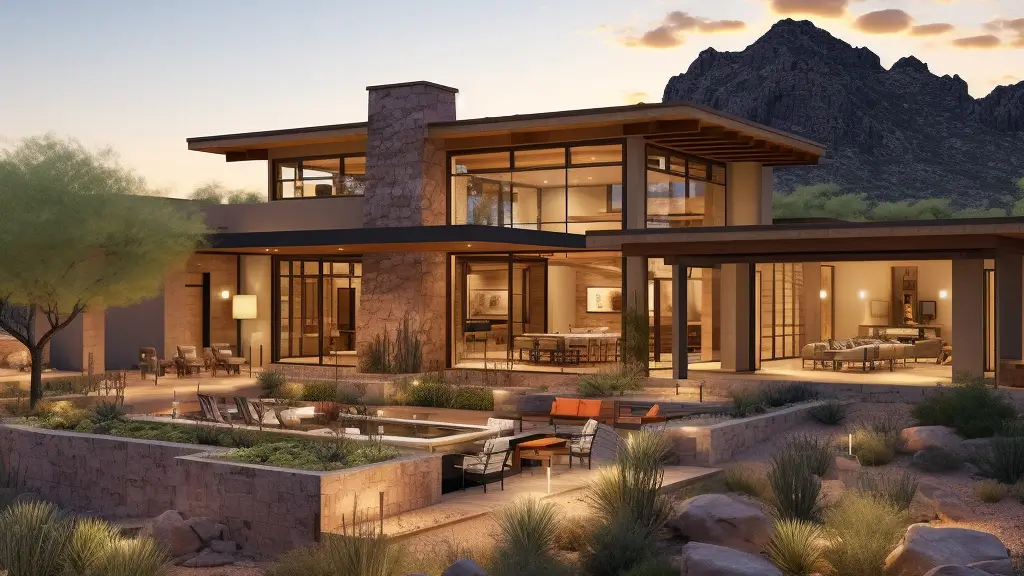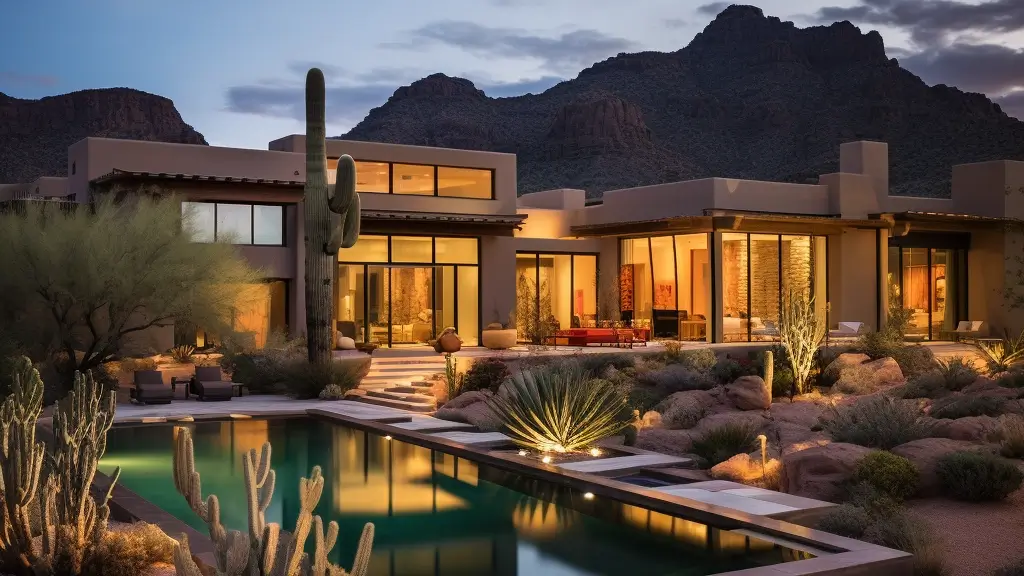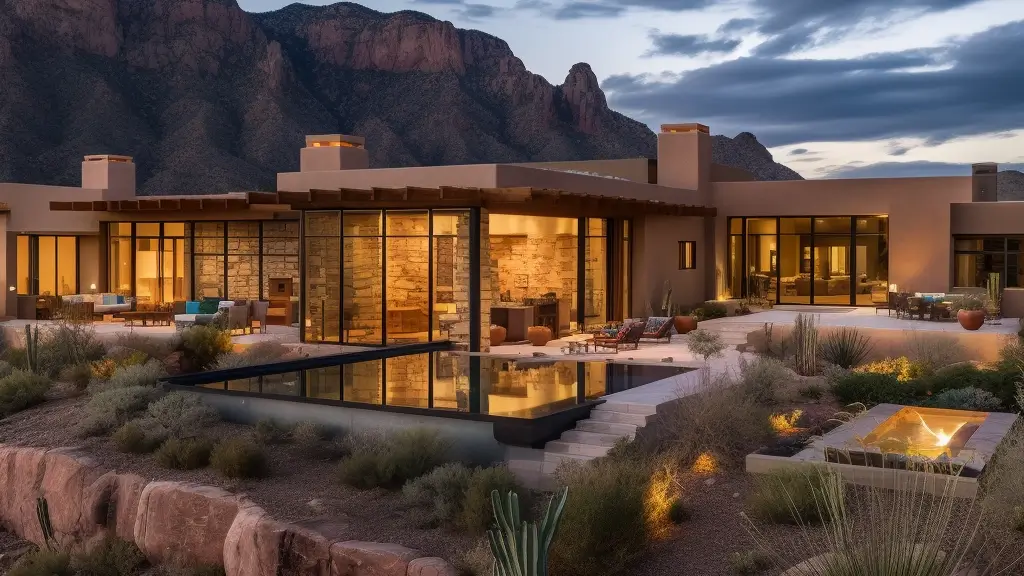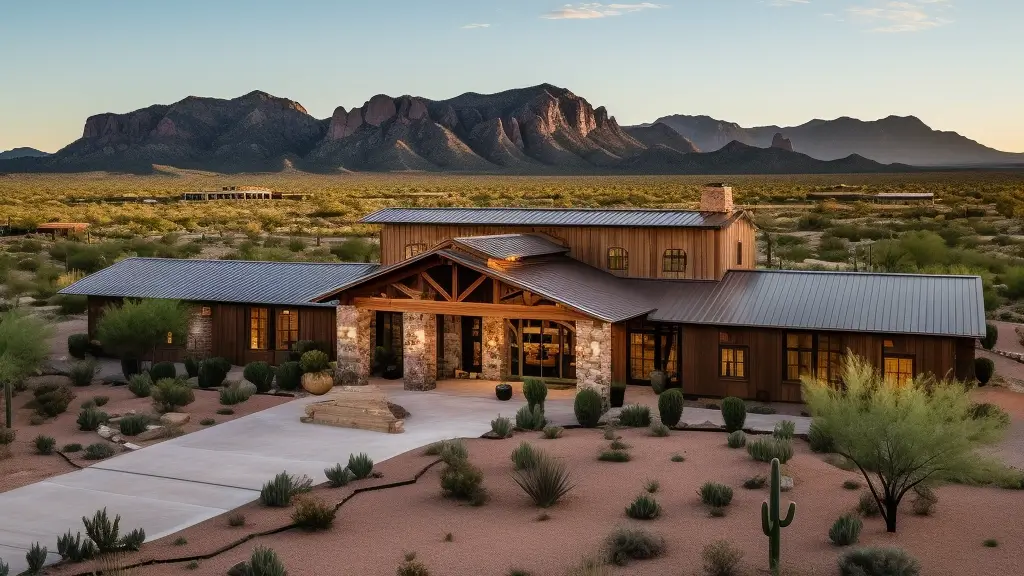Learn how to select the right custom home builder for your needs, plus get expert insights from Daniel Boveington of Sunstone Development and Construction on construction permitting, timing, and cost when building in Tucson.
Custom Home Process Overview
The process of designing and constructing a custom home in Tucson, Arizona, commences with the acquisition of a suitable plot and planning of the home design. The next step is to engage a qualified architect to translate your vision into architectural plans and construction drawings. We highly recommend that the builder you select be involved with this process as many architects understand computer aided drafting (CAD) but may not have spent any time in the field with physical construction. Once the design is finalized, you’ll need to secure the necessary permits before construction can commence. This process can take months and require a few revisions but during this time your general contractor can be collecting estimates from subcontractors, suppliers and trades. The construction phase is a meticulous process that involves various stages such as laying the foundation, framing, installation of electrical and plumbing systems, and more. It’s crucial during this phase to consistently communicate with your builder to ensure your home is shaping up as per your vision. Upon completion of the construction, inspections are carried out to ensure the home meets all the local building codes and standards.
Getting Started With Your New Custom Home: A 7-Step Process
Step 1: Acquiring the Perfect Lot
The first step to building your custom home involves finding the perfect plot of land. Make sure to consider factors like location, size, and topography. You might also need to investigate zoning and environmental restrictions and if you’re planning to build in an established community, review the Covenants, Conditions and Restrictions (CC&Rs) for important information about what size and type of home you can build in the subdivision. Selecting the right lot is perhaps one of the most important decisions you’ll make. It determines the size of house you should build based on the price comparisons of other homes in the area, the schools that your children will attend, your tax rates, commute times and proximity to nearby amenities. When obtaining a construction loan the bank will evaluate the marketability of the home you build so comps are an important consideration.
Step 2: Getting Plans by an Architect
Once you have your lot, hire an architect to design your home. We have recommendations that we’re happy to share with you based on the type of custom home you’d like to build. Share your vision, lifestyle needs, and budget considerations. The architect will create a blueprint that incorporates all these factors and if you have hired your architect before your builder then you may consider asking your architect for a few custom builder recommendations that you can interview.
Step 3: Bringing in Your Builder
After finalizing the design, bring in your builder. The builder will review the plans, make suggestions based on construction practicality, and eventually translate the architectural plan into your dream home. Select a general contractor that you get along with well. You will work this this builder throughout the design, permitting, construction, inspection and warranty process. Also ensure that your builder is able to work with your bank and meet the underwriting requirements that often require additional performance bonds, inspections before progress payments and warranty guarantees.
Step 4: Securing Construction Funding
Bring in your lender early and let them know that you plan to build on your property. The underwriter will have a number of requests and approvals before approving your construction loan. Most banks require that you own the property without any liens and higher DTI standards. In some cases, the construction loan may pay off a prior lien on the property and wrap it in with the construction loan. Understanding this process can prevent delays.
Step 5: Starting the Project and Construction Payments
With funding secured, the construction begins. Payments follow a draw schedule, where the bank pays the builder as specific stages of construction are completed. This ensures that the work is progressing as planned before the next funds are released. At no time will the bank allow the project to fall into an unsecured position. A great builder that keeps the project moving and sticks to budgets is critical in building a custom home. The bank may have added a contingency budget to cover unforeseen conditions but excessive change orders once the project is underway will most likely not be covered by the construction loan. Proper planning is key to a successful build.
Step 6: Inspections and Timelines
Throughout construction, regular inspections ensure work quality and code compliance. Keeping open communication lines between all parties helps maintain the project timeline. If inspections fail, which is not necessarily uncommon, this can cause schedule delays and budget overruns. It’s important that your general contractor is able to hold subcontractors and trades to high standards of workmanship during the process.
Step 7: Converting Construction Loan to a Traditional Mortgage
Once the construction is completed, the construction loan is converted into a traditional mortgage. This conversion occurs when the local municipality issues a certificate of occupancy. At this point, you are ready to move into your new custom home! Your builder will follow up with you and in most cases touchups and minor repairs will be needed at about a year out and after your home settles into place.
Frequently Asked Questions About Building in Southern Arizona
We would love to work with you on your custom home.
Sunstone Development and Construction is dedicated to crafting beautiful custom homes that fulfill client visions while adhering to budget and timeline constraints. Our expertise in thorough planning, seamless communication, and efficient cost management makes us the perfect partner for your custom home build. We invite you to reach out to us today to start turning your dream home into a reality.
Contact Dan Boveington at (520) 223-9418 or email us at: Dan@SunstoneArizona.com



